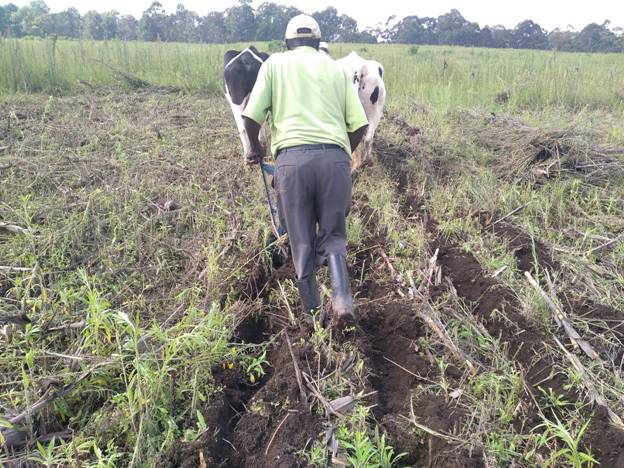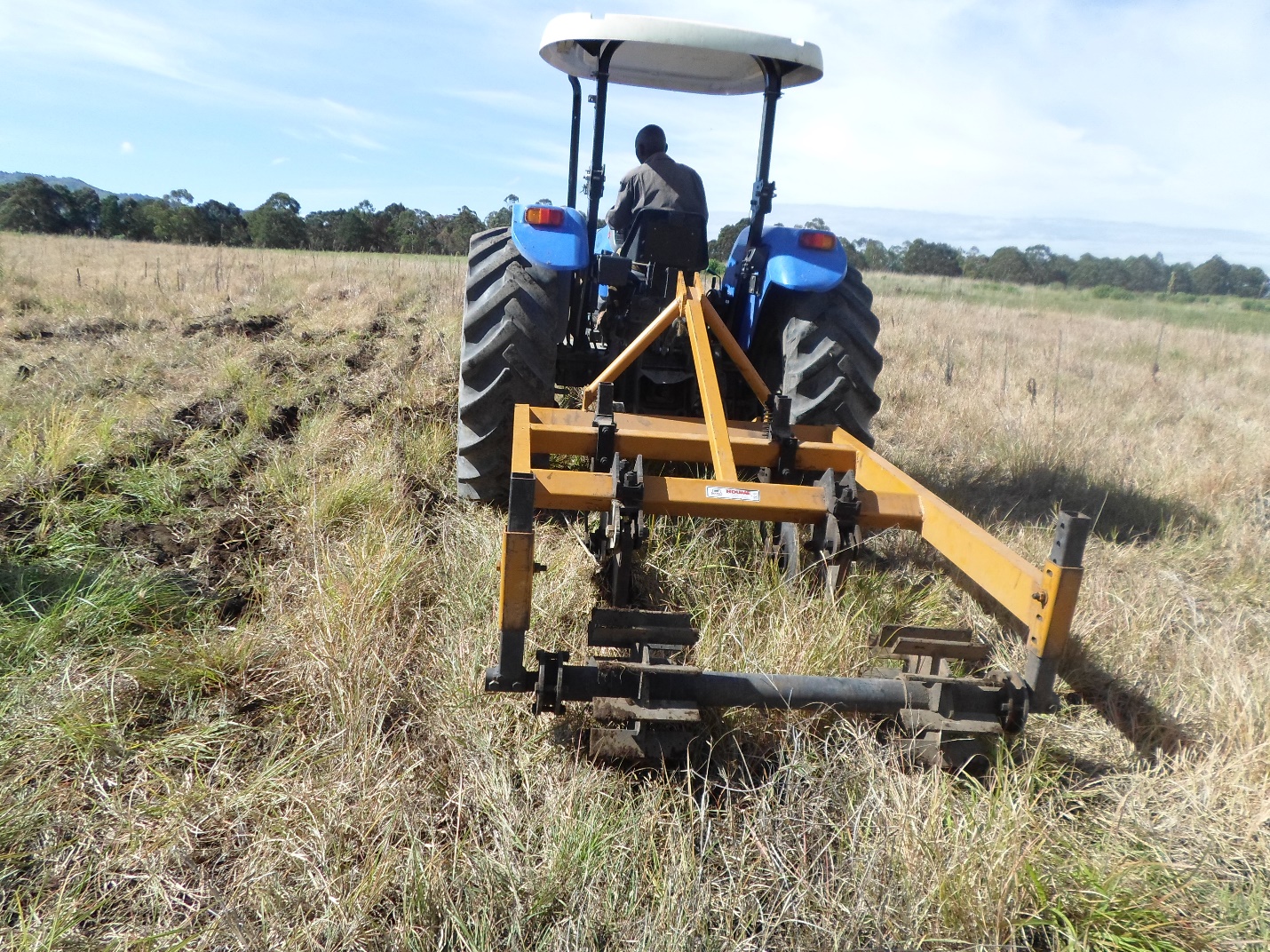AGRICULTURAL MECHANIZATION
Tanzania Agricultural Research Institute (TARI) under Ministry of Agriculture has mandated TARI Uyole centre to coordinate agro-mechanization research program in mainland Tanzania. TARI Uyole is responsible to oversee and promote the role of agro-mechanization technologies in the country. This involves the use of tractor and animal drawn implements in conservation agriculture (CA) based approach. The center is focused on disseminating the agro-mechanization technologies based on CA approach that reduce production costs, time saving, manpower and increasing productivity. TARI Uyole as a lead institute in agro-mechanization research activities is also responsible to oversee and coordinate the on-going mechanization research activities in other institutes like TARI Selian, TARI Ukiriguru, TARI Maruku, TARI Mlingano and TARI Tumbi. The CA technologies has been tested on different crops like maize, beans, rice, soybean wheat, sorghum and millets. The agro-mechanization technologies developed and disseminated to farmers are shown in the table below:
| Type of agricultural
mechanization technologies used in conservation agriculture | Approach used | Where disseminated | Means of
dissemination |
| Animal Drawn Implements (Ox-ripper, direct
seeding by Nadra & Fitareli) | Farmer field school (FFS), Demo plots,
Participatory | Mbeya rural, Wanging’ombe District Council,
Njombe District Council, Sumbawanga, Mbozi, Songea, Mbalizi polytechnic,
MATI-Uyole, Mamre, Igurusi and Inyala. | - Media eg. Television (10), Radio (6), and New paper (8). |
| Tractor Drawn Implements (Tractor ripper) | Partnership trainings, Farmer groups trainings,
Lead farmers trainings | - Nane nane Exhibitions. - Leaflets - Business Expo |

Use
of Ox-ripper to open rip lines for planting
However, the institute through agro-mechanization department offers training sessions on climate smart agricultural technologies including conservation agriculture to different stakeholders along the value chain. The training offered to farmers, college students, agro-dealers, implement fabricators, and policy makers to create awareness on CA technologies. For instance, last year (2020) the department offered training of climate smart agriculture technologies on fruits and vegetable production to local service providers in lead farmers from Mbozi, Rungwe, Mpanda and Katavi. This training was conducted at TARI Uyole followed by field excursion. Furthermore, the department deals with screening of different cover crops according to agro ecological zones.

Use
of tractor ripper to open rip lines for planting

